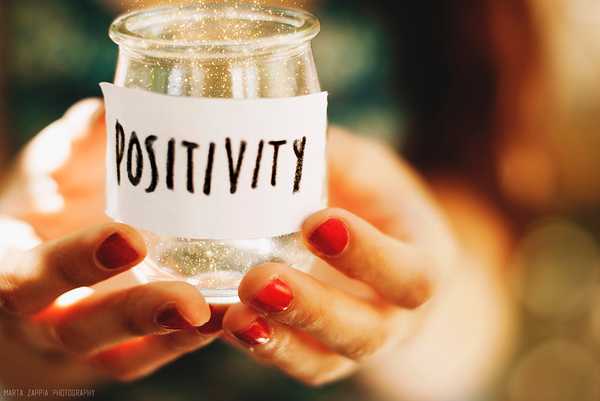In today’s society, adolescents and young adults are no strangers to the abundance of brainwashing and harmful messages that the media, our peers, our families, and our cultures feed us, and the falsified concept of virginity is no different.
The age-old term with no definitive bodily marker and an exclusive definition, virginity has long been called a “protection” for girls and women, and a surefire indicator of purity and femininity – theories that have backfired time and time again, resulting in both emotion and physical damage around the world.
Breaking a hymen, vaginal penetration, and change of genitals in shape or size are commonly associated with “losing” a virginity – but it’s about time those ideas are debunked as the myths they truly are (since Sex Education classes couldn’t do it themselves) to prove that the notion of virginity is obsolete.
The Concept
The term virginity is widely known to mean one of two things: I have never had my penis in a vagina, or I have never had a penis in my vagina. Although these definitions are about as clear-cut as they come, the reality is, the true definition is far more complex – and one hundred percent unique to each person. Since there is no biological or medical definition, there’s room to personalize based on personal belief. When discussing virginity at a conference at Harvard, Lori Adelman of the International Women’s Health coalition had this to say about the topic:
“Some common factors that folks seemed to take into account when deciding whether something “counts” as sex or not [are] when and how the consent was obtained, [the] number of partners, [the] existence of orgasm and/or ejaculation, [the] length of time engaged in activity, [and the] intentions of the people involved. Perhaps most importantly, we established that even though there are many different ideas of what “sex” is, my definition of sex and your definition of sex can coexist simultaneously. One doesn’t invalidate the other.”
While it can be possible in your mind to lose your virginity, there is no one definition, and definitions can always be changing. Therefore, using a blanket term, like we have for countless years, is useless, because, after so many years of standing by the same definition, it leaves no room for open-mindedness or evolution of the idea.
Misplaced Value
Another myth regarding the workings of “virginity” states that the concept has been put into place in order to guard the safety of girls and women. Not only is this a sexist notion (we can look after ourselves, thank you very much), valuing virginity has actually put women at a higher risk of abuse, assault, and violence by members of a society that believes virginity ties to a woman’s worth. Such a belief system leads to the controlling of women rather than protection. From “slut-shaming,” to the deliberate withholding of information about reproductive and sexual health, to female genital mutilation, to breast ironing, women would clearly be better off without this harmful version of “protection.” Had we not placed so much pressure on the need to “keep” one’s virginity, there’s a chance that the number of sexual assault cases would have been much lower than the 188,380 reported in 210. What’s worse – most of those victims were women under the age of 24.
Queer Sex
Among the issues with today’s definition of virginity, its exclusiveness blatantly favors heterosexual contact – meaning any form of queer sexual intercourse is marginalized, and virtually invisible. This heterosexual privilege likely stems from its association with reproduction (and became homophobia and heteronormativity are alive and well). But the standard of “losing” one’s virginity begins to fold in on itself here. As Adelman put it,
“What about a female-bodied person whose sexuality does not involve being penetrated? Are her sexual experiences somehow less valid? Part of rethinking virginity has to include incorporating a more nuanced and more queer-friendly concept of sex and virginity that doesn’t serve to devalue the experience of any person or group of people.”
In this sense, our definition bars some from ever losing their virginities based on their sexuality, even though a personal definition may be centered around sexual contact that does not involve penetration. (Not to mention – what happened to gay rights being all the rage?)
The Biology
Contrary to popular belief, there isn’t one specific part of the body that determines a person’s virginity, or lack thereof – not even the hymen. Professor Kathleen Kelly of Northeastern University spoke on the subject:
“What we recognize as the hymen today was not always considered as such. If we trace the etymology of the word hymen from Greek through Latin to English, we can observe how the word progressively narrows in meaning, first denoting any sort of bodily membrane, then referring to the womb, and finally coming to mean, almost exclusively, “virginal membrane” in the early modern period. The hymen is an overdetermined, widely misunderstood sign precisely because it has never been a fixed part of anatomy. The hymen is both an anatomical part and a metonym.”
Although there’s no denying the existence of a vaginal membrane, consider “popping the cherry” during sex officially out the window. While it can happen, in many instances the hymen is broken long before a woman has sexual intercourse for the first time. Over time, a woman’s hymen thins, and sports like horseback riding and gymnastics – even a particularly intense workout – can cause the hymen to stretch or tear on its own. Along those same lines, it’s oftentimes not even the hymen that causes bleeding during sex. If a woman has not had enough time to become fully sexually aroused, the friction of penetration may cause the vaginal tissue to bleed. Additionally, it’s rare that a woman is born with a hymen that covers the entire vaginal opening. Think about it – menstruation would be impossible. A woman may have sex entire life and may never break the hymen, or vice versa.
Sex and Marriage
Although waiting until marriage to have sex can be a purely personal choice, it’s often a rule encouraged (and sometimes harshly enforced) by religion, culture, or family. Although family often means well, putting intense weight on the meaning of virginity can be worse than the sexism it was based on. Popularly followed, the Bible mentions virginity of a woman on a few occasions. For example:
“Leviticus 21:13-14; And he shall take a wife in her virginity. A widow, or a divorced woman, or a woman who has been defiled, or a prostitute, these he shall not marry. But he shall take as his wife a virgin of his own people.”
Because of the notion that a woman must be pure until marriage, but a man must be forgiven by his wife for his past transgression, a tremendous pressure is placed.
Another misconception is that sex after marriage is safer and healthier. Unfortunately, sex and marriage licenses don’t come as a package deal. In fact, sex within marriage is not even always consensual, and sadly, rape occurs within the institution of marriage every day. In fact, ten to fourteen percent of ever-married women have experienced at least one forced sexual assault by a husband or ex-husband. Remaining a virgin does nothing to guarantee a “healthy” sex life any more than having sex before marriage does.
Changes
Oftentimes, the target of slut-shaming is the genitals – it’s claimed that when a woman has “too many” sexual partners, her vagina will begin to loosen, but this is absolutely not the case. When at rest (at all times, except during childbirth or sexual arousal), the vaginal muscles are tightened and closely folded, much like an accordion. As a woman becomes sexually aroused (which normally takes about half an hour), the muscles loosen slightly (nature’s way of promoting pregnancy) and the penis can enter much easier. After the period of sexual arousal is over, the vaginal muscles are elastic enough to return to the tightness they were before having intercourse. Your mouth works the same way – no matter how many extra-large burgers you eat, your mouth doesn’t get “over-stretched.” The same goes for a woman’s vagina – even after birth! It’s no different for men, either. Like a vagina, a penis will return to its original size after the erection subsides. Sorry, dudes!
Conclusion
Virginity is considered to be “lost” the first time a person has sex, but this definition can not only harm a woman physically and emotionally, but in turn validates men. An entire industry of destroying women’s bodies has come about to stifle a woman’s privilege to make choices about her own body without repercussions.
As there’s a first time for everything (you don’t lose your car driving virginity, or your cheeseburger virginity), so why should we label the first time a person has a biologically valid experience? Since there’s no true marker of “losing” a virginity, and it’s not a feasible object someone can take from you, “virginity” is a lost cause. As long as safety is a factor in sex, anyone should be able to do it how they want, when they want, and with whomever they want.
Furthermore, whether you’re sexually active on a daily basis, or abstaining until marriage; whether you’re heterosexual, homosexual, or somewhere in between; whether you believe in virginity or not – you have the right to your own beliefs and opinions. If you believe it, it’s yours, and you don’t have to prove yourself to anyone! Being safe is encouraged, but do what makes you happy!





















